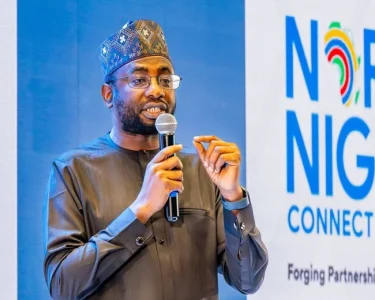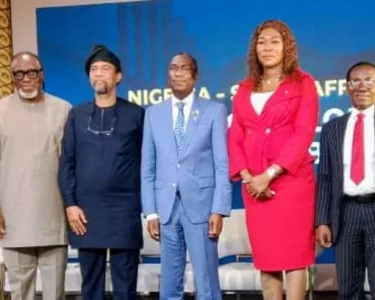Leading women professionals from across sectors of the Nigerian economy are rejigging their determination to confront the ongoing issues of workplace discrimination, harassment, and gender bias that continue to hinder their advancement.
Speaking during a webinar titled, “Breaking the Glass Ceiling”, and moderated by Funsho Anthony, the webinar’s session featured women such as Linda Ochugbua, Esohe Igbinoba, Amirah Oyegoke, Abigail Semono, and audience contributor Ayodeji Osatuyi, each drawing from personal and professional experience to address the realities women face and the changes needed to shift the narrative.
In her keynote, Linda Ochugbua, a seasoned sales and marketing executive, spoke on the invisible walls many women still face in professional spaces.
“We’re up against outdated beliefs that associate leadership with masculinity,” she said, adding “From tone policing to unequal pay and biased evaluations, the message often is: be twice as good, and still, you might not be chosen.”
She emphasized the need for concrete reforms, pointing to various forms of harassment, including verbal abuse, hostile environments, and inappropriate jokes that are often ignored or normalized. “It’s not enough to have policies on paper,” she stated. “They must be reviewed often and enforced with intention.”
Abigail Semono, an agile and life coach, focused on the role of individual action in sparking change. Recalling her advocacy for a lactation room in a former workplace, she said, “What seemed small at the time triggered a broader shift in how the company supported mothers. One persistent voice can make a real difference.”
Amirah Oyegoke, a product designer, addressed subtle exclusion in the workplace. “Discrimination isn’t always loud. It creeps in when you’re left out of big conversations or overlooked for meaningful projects. We must stay aware and call it out.”
Esohe Igbinoba, a venture builder, recounted troubling encounters with inappropriate investor behavior in informal business settings. “I’ve been asked to meet in hotel rooms for what were supposed to be business discussions,” she said. “And when I declined, I was labeled ‘difficult.’ We must protect our dignity and say no without apology.”
From the audience, Ayodeji Osatuyi shared his experience as a Nigerian man navigating racial and accent-based bias in Canada. “You face several forms of prejudice, because of your gender, your skin, and your voice,” he said. “My approach has been to stay strategic: under-promise, over-deliver, and keep moving forward.”
The conversation also explored how upbringing affects workplace dynamics. Eniola Anthony spoke of being raised to be self-reliant and how that shaped her confidence. Yet, assertiveness still draws criticism. “You speak up and you’re called difficult,” added Linda. “But silence won’t protect us either.”
Addressing one of the most damaging stereotypes, Obed Semono called out the claim that women reach the top through questionable means. “It’s an unfair narrative used to discredit women’s hard-earned progress.” Abigail added, “Let your work speak. Stay professional, define your boundaries, and most importantly, support other women.”
Throughout the session, there was a strong consensus on the need for workplaces to evolve, not just through formal policies but by cultivating cultures where discrimination is actively challenged, inclusive conduct is reinforced through regular training, and accountability is upheld through consistent evaluations. Creating avenues for mentorship and ensuring that women and men alike have equal access to opportunities were also identified as critical steps in building healthier, more balanced teams.
In her closing remark, Funsho Anthony emphasized the importance of shared responsibility. “We need men to be part of these conversations,” he said. “Change happens faster when everyone is involved.”
This webinar was more than a discussion, it was a strong, clear statement: Women are no longer waiting to be invited to lead. They are already leading, and calling for the systems around them to catch up.





